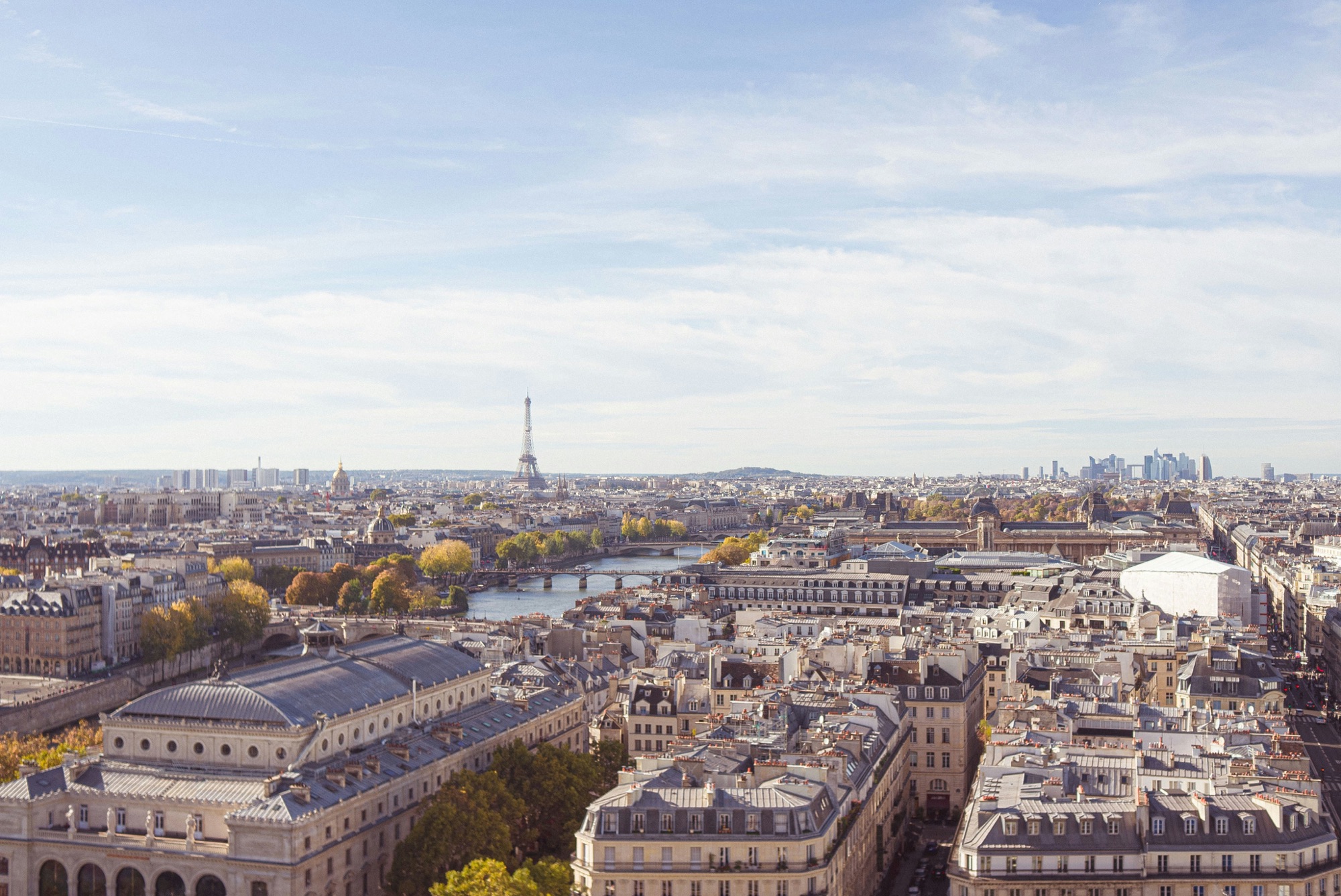France, one of the world’s oldest and most influential nations, holds a prominent position on the global stage due to its historical legacy, economic prowess, military strength, and cultural impact. As a key member of international institutions like the European Union (EU), the United Nations (UN), and the North Atlantic Treaty Organization (NATO), France continues to shape global policy and influence international affairs. In this article, we will explore France’s power by delving into its military, economic, and cultural contributions, highlighting its role as one of the world’s most powerful nations.
France’s Military Power: A Force to be Reckoned With
1. A Permanent Member of the United Nations Security Council
France is one of the five permanent members of the United Nations Security Council (UNSC), which grants it significant influence in global security matters. As a P5 nation, France wields veto power, allowing it to block resolutions that conflict with its national interests or broader global policy objectives. This membership underscores France’s status as a global power capable of influencing decisions on war, peace, and international security.
2. One of the World’s Leading Nuclear Powers
France possesses one of the most advanced nuclear arsenals in the world, positioning it among the leading nuclear powers. France’s nuclear deterrent, known as the Force de frappe, includes nuclear warheads deployed via submarine-launched ballistic missiles (SLBMs) and air-launched cruise missiles. With approximately 290 nuclear warheads, France maintains a credible deterrence capability, ensuring that it can protect itself and deter threats from other nations.
France’s nuclear doctrine emphasizes deterrence rather than aggression. As the sole nuclear power in the EU, France’s nuclear force plays a critical role in Europe’s overall defense strategy, particularly in the context of NATO’s defense posture.
3. Advanced Military Capabilities
The French Armed Forces are among the most capable in Europe, boasting highly trained personnel and advanced military technology. With over 200,000 active personnel, France has one of the largest standing militaries in the EU. The country’s military budget ranks among the top ten globally, with an annual defense expenditure of approximately €45 billion in 2023.
France’s military is divided into several key branches:
- Army (Armée de Terre): France’s ground forces are equipped with advanced tanks like the Leclerc, armored vehicles, and modern artillery systems.
- Navy (Marine Nationale): France’s navy is one of the most formidable in Europe, featuring the Charles de Gaulle, a nuclear-powered aircraft carrier that allows France to project power far beyond its borders. The French Navy also operates ballistic missile submarines, frigates, and amphibious assault ships.
- Air Force (Armée de l’Air et de l’Espace): The French Air Force is equipped with advanced fighter jets such as the Dassault Rafale, which is regarded as one of the most versatile multirole aircraft in the world. The Air Force also operates aerial refueling tankers, transport aircraft, and a range of advanced drones.
- Space and Cybersecurity: France has increasingly invested in cyber defense and space capabilities, recognizing the growing importance of these domains in modern warfare. In 2019, France established the French Space Command to enhance its space defense capabilities.
4. Active Global Military Presence
France maintains an active military presence across the globe, with ongoing operations in regions like Africa, the Middle East, and Europe. French forces are currently involved in numerous international peacekeeping missions, anti-terrorism operations, and humanitarian interventions. One of the most significant operations is Operation Barkhane in the Sahel region of Africa, where French forces are leading efforts to combat Islamist insurgents.
In addition to its combat operations, France plays a critical role in NATO. As one of the key contributors to the alliance, France participates in joint exercises, military deployments, and strategic planning to ensure the collective defense of Europe and its allies.
5. Military Industry and Arms Exports
France has a robust domestic defense industry, producing advanced military equipment for both domestic use and export. Companies like Dassault Aviation, Thales Group, and Nexter Systems are global leaders in the production of fighter jets, tanks, missiles, and electronic defense systems. France is also one of the world’s top arms exporters, supplying weapons to countries across Europe, the Middle East, and Asia.
The strength of France’s defense industry further enhances its geopolitical influence, allowing it to form strategic partnerships and maintain close ties with various nations through arms deals and defense cooperation.
France’s Economic Power: A Major Global Economy
1. The Seventh Largest Economy in the World
France is the seventh-largest economy globally and the second-largest in the European Union, trailing only Germany. With a Gross Domestic Product (GDP) of approximately $3.1 trillion in 2023, France’s economy is diversified and resilient, powered by a combination of manufacturing, services, agriculture, and high-tech industries.
France’s standard of living is among the highest in the world, and it consistently ranks as one of the most competitive economies in Europe. The country benefits from a highly educated workforce, robust infrastructure, and a strong tradition of technological innovation.
2. Key Sectors Driving the French Economy
Several sectors play a crucial role in driving France’s economic growth:
- Aerospace: France is a global leader in the aerospace industry, home to Airbus, one of the world’s largest commercial aircraft manufacturers. The aerospace sector contributes significantly to France’s GDP and exports, with both civilian and military aircraft playing a key role in the global market.
- Automotive: The Renault Group and PSA Peugeot Citroën are iconic French automotive manufacturers with a strong international presence. France’s automotive sector is highly innovative, particularly in the development of electric vehicles and autonomous driving technology.
- Luxury Goods and Fashion: France is synonymous with luxury, hosting some of the world’s most famous luxury brands, including LVMH, Chanel, Hermès, and Louis Vuitton. Paris remains the epicenter of global fashion, and the luxury goods sector continues to be one of the country’s most lucrative industries.
- Agriculture and Food: France is Europe’s largest agricultural producer and a global leader in the wine and food industries. French products like Champagne, Bordeaux wines, cheese, and pastries are internationally renowned, contributing to the country’s export revenues.
3. Leading Member of the European Union
As a founding member of the European Union (EU), France plays a pivotal role in shaping the economic policies of the bloc. The Eurozone, which France helped establish, integrates many European economies under a single currency, the euro, facilitating trade and financial stability across the region.
France’s leadership within the EU is essential for driving key initiatives such as the Green Deal, Common Agricultural Policy (CAP), and Digital Single Market. The country’s economic policies, particularly its commitment to environmental sustainability, are integral to the EU’s future growth and development.
4. France as a Global Investor
French companies are major players in international markets, with substantial investments in foreign assets. France is one of the largest investors in Africa, Latin America, and the Asia-Pacific region, and its multinational corporations operate in sectors such as energy, telecommunications, pharmaceuticals, and financial services. French firms like TotalEnergies, Sanofi, and BNP Paribas are global leaders in their respective industries.
France’s international investments contribute to its geopolitical influence, allowing the country to form strong economic ties with emerging markets and expand its global reach.
5. Innovation and Technology
France has positioned itself as a global leader in innovation and technology, particularly in sectors like biotechnology, artificial intelligence (AI), and renewable energy. The French government actively supports innovation through initiatives like the France 2030 investment plan, which aims to make France a global leader in the digital and green economies.
Paris, along with other French cities, has become a hub for startups and tech companies, earning it the moniker “the Silicon Valley of Europe.” This focus on technology and innovation not only strengthens France’s economy but also enhances its global competitiveness in the 21st century.
France’s Cultural Influence: Soft Power on the Global Stage
1. A Rich Artistic and Intellectual Tradition
France has long been a beacon of art, philosophy, and literature, boasting an extraordinary cultural heritage that has shaped the intellectual and artistic landscape of the world. The country has produced some of the most influential thinkers in history, including René Descartes, Jean-Paul Sartre, and Simone de Beauvoir, whose works continue to influence philosophy, politics, and ethics today.
French literature is equally renowned, with authors like Victor Hugo, Marcel Proust, and Albert Camus contributing to the global literary canon. French art has also left an indelible mark on history, from the Impressionist movement to modern and contemporary art, with artists like Claude Monet, Édouard Manet, and Pablo Picasso, who lived and worked in France.
2. Cultural Institutions and Global Influence
France’s cultural institutions, such as the Louvre Museum, the Palace of Versailles, and the Centre Pompidou, are world-famous and attract millions of tourists annually. The Louvre, in particular, is the most visited museum in the world, housing some of the most iconic works of art, including the Mona Lisa and the Venus de Milo.
French cinema, particularly the New Wave (Nouvelle Vague) movement, has also had a lasting impact on the global film industry. The Cannes Film Festival remains one of the most prestigious film festivals worldwide, further cementing France’s position as a cultural powerhouse.
3. The French Language and Francophonie
The French language is another key component of France’s soft power. As the official language of 29 countries, French is spoken by over 275 million people worldwide, making it one of the most widely spoken languages on the planet. France leads the Organisation Internationale de la Francophonie, which promotes the French language, cultural exchange, and cooperation among French-speaking nations.
This global linguistic footprint allows France to wield significant cultural influence, particularly in Africa, where it maintains strong ties with many former colonies.
4. Fashion, Cuisine, and Global Trends
France is synonymous with high fashion, luxury goods, and haute cuisine. Paris is the epicenter of global fashion, home to some of the world’s most famous designers and fashion houses. French cuisine, recognized by UNESCO as part of the “intangible cultural heritage of humanity”, continues to influence global culinary trends, with French chefs and gastronomic techniques admired worldwide.
France’s cultural exports, from fashion to film and food, solidify its reputation as a global trendsetter, contributing to its soft power and international prestige.
Conclusion: A Balanced and Multifaceted Power
France’s global power stems from a combination of its economic strength, military capabilities, and cultural influence. As one of the world’s leading economies, a nuclear power, and a key player in international organizations like the EU, UN, and NATO, France continues to shape global affairs in meaningful ways.
Culturally, France’s legacy in art, philosophy, and language is unparalleled, and its modern contributions to fashion, cinema, and cuisine reinforce its status as a global cultural hub. The country’s military strength, particularly its nuclear deterrence and active participation in global security, ensures that France remains a critical player in maintaining international peace and security.
France’s ability to balance hard power (military and economic might) with soft power (cultural influence and diplomacy) makes it a truly global force. As the world evolves, France’s role in shaping global policies, promoting international cooperation, and advancing technological and cultural progress ensures that its influence will remain robust for years to come.




